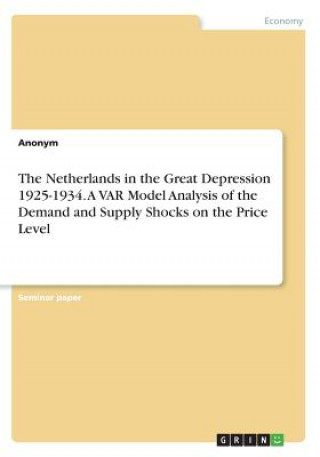
Kód: 16014108
The Netherlands in the Great Depression 1925-1934. A VAR Model Analysis of the Demand and Supply Shocks on the Price Level
Autor Anonym
Seminar paper from the year 2016 in the subject Business economics - Economic and Social History, grade: 5, University of Zurich, language: English, abstract: In this paper, we apply an empirical analysis to provide an answer to t ... celý popis
- Jazyk:
 Angličtina
Angličtina - Vazba: Brožovaná
- Počet stran: 20
Nakladatelství: Grin Publishing, 2017
- Více informací o knize

Mohlo by se vám také líbit
Darujte tuto knihu ještě dnes
- Objednejte knihu a zvolte Zaslat jako dárek.
- Obratem obdržíte darovací poukaz na knihu, který můžete ihned předat obdarovanému.
- Knihu zašleme na adresu obdarovaného, o nic se nestaráte.
Více informací o knize The Netherlands in the Great Depression 1925-1934. A VAR Model Analysis of the Demand and Supply Shocks on the Price Level
Nákupem získáte 95 bodů
 Anotace knihy
Anotace knihy
Seminar paper from the year 2016 in the subject Business economics - Economic and Social History, grade: 5, University of Zurich, language: English, abstract: In this paper, we apply an empirical analysis to provide an answer to the Bullionist Controversy in Great Britain in the 18th century adopted to the Netherlands in the Great Depression. Therefore, we answer the question whether the price evolution in this period has been mostly driven by demand or supply shocks and whether remaining in the gold standard was a good decision for the economic development or not. For our analysis we estimated a vector autoregressive model (VAR) and applied the Blanchard-Quah decomposition to identify the demand and supply shocks on the output growth and inflation. Therefore, we use an impulse response and a Forecast Error Variance Decomposition to illustrate our results. We argue in this paper that the impact of the Great Depression on the economy of the Netherlands has been bigger because it stayed part of the Gold Bloc and therefore maintain convertibility. Thus, we bring forward the argument of the bullionist that the price shock has been a result of a demand shock. he gold standard as a consequence has led to an overvaluation of the Dutch currency (guilder). For a small open economy like the Netherlands which is highly dependent of exports and has a big shipping sector the exchange rate plays a crucial role. Thus, the overvaluation resulted in a negative demand shock. Furthermore the persistent deflation and downward pressure on wages have led to even higher deflation expectations of the population, what dampened the aggregate supply. Finally, the policy decisions of the government were incapable to reduce the problem and get out of the depression. Only after the suspension of the convertibility to the gold standard and a devaluation of the currency the economy was able to recover. For this reason an earlier suspension would have had reduced the length and the intensity of the Great Depression for the economy of the Netherlands.
 Parametry knihy
Parametry knihy
Zařazení knihy Knihy v angličtině Economics, finance, business & management Economics
948 Kč
- Plný název: The Netherlands in the Great Depression 1925-1934. A VAR Model Analysis of the Demand and Supply Shocks on the Price Level
- Autor: Anonym
- Jazyk:
 Angličtina
Angličtina - Vazba: Brožovaná
- Počet stran: 20
- EAN: 9783668393455
- ISBN: 3668393451
- ID: 16014108
- Nakladatelství: Grin Publishing
- Hmotnost: 44 g
- Rozměry: 210 × 148 × 1 mm
- Datum vydání: 07. March 2017
Oblíbené z jiného soudku
-
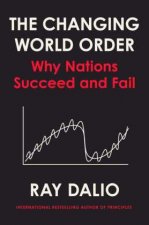
Principles for Dealing with the Changing World Order
470 Kč -

Freakonomics
201 Kč -

Irrational Exuberance
485 Kč -

Misbehaving - The Making of Behavioral Economics
269 Kč -
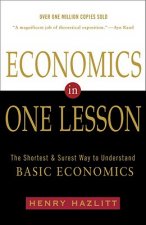
Economics In One Lesson
368 Kč -

most important thing
473 Kč -

Liar's Poker
301 Kč -
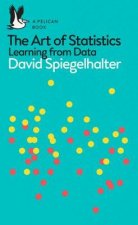
Art of Statistics
288 Kč -

Breakthrough Copywriter
427 Kč -

Price of Inequality
269 Kč -

ISE Investments
1917 Kč -

Why Nations Fail
337 Kč -

Pyramid Principle, The
1141 Kč -

Team Topologies
486 Kč -

Phishing for Phools
409 Kč -

Rational Optimist
259 Kč -

Predictably Irrational
356 Kč -

Business Model Navigator, The
698 Kč -

ITIL4 A POCKET GUIDE
592 Kč -

Think Like a Freak
201 Kč -

Currency Wars
366 Kč -

Human Action
947 Kč -
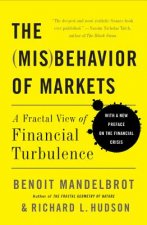
Misbehavior of Markets
560 Kč -

Debt, 10th Anniversary Edition
645 Kč -

Economics: The User's Guide
337 Kč -

Delicate Art of Bureaucracy
511 Kč -

HR Change Toolkit
437 Kč -

Economist Guide To Analysing Companies 6th edition
433 Kč -

NO LOGO 10THANN ED
503 Kč -

Economics
8564 Kč -

Organizational Design
1401 Kč -

Family Office
981 Kč -

Manias, Panics and Crashes
742 Kč -

Dollars and Sex
540 Kč -

No B.S. Sales Success in the New Economy
355 Kč -
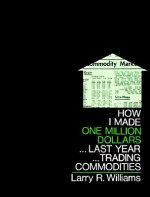
How I Made One Million Dollars Last Year Trading Commodities
979 Kč -

Start-Up Nation
259 Kč -

Economic Facts and Fallacies
417 Kč -

Essential Mathematics for Economic Analysis
2234 Kč -

Leading at a Higher Level
721 Kč -

Freakonomics
171 Kč -

Economics 101
333 Kč -

Fed Up
606 Kč -

New World Economy: A Beginner's Guide
370 Kč -

(Mis)Behaviour of Markets
333 Kč -

Economics Book
447 Kč -

The Invisible Hand
179 Kč -

A-Level Economics: Year 1 & 2 Complete Revision & Practice (with Online Edition)
661 Kč -

Econometric Analysis, Global Edition
2061 Kč
Osobní odběr Praha, Brno a 12903 dalších
Copyright ©2008-24 nejlevnejsi-knihy.cz Všechna práva vyhrazenaSoukromíCookies





 Vrácení do měsíce
Vrácení do měsíce 571 999 099 (8-15.30h)
571 999 099 (8-15.30h)